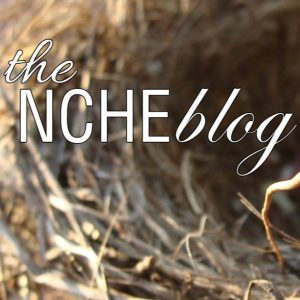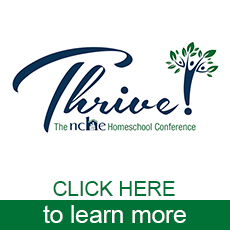It has become fairly common for homeschools to receive solicitations from local school districts offering classes on the Internet or in the classroom. Many school districts are stating that homeschool students can be dually enrolled in both homeschool and public school, and they encourage or require that homeschool students enroll in at least two classes per semester to participate. Also, the two virtual charter schools, the North Carolina Connections Academy and the North Carolina Virtual Academy, are heavily promoting their free public schools. Can homeschools use these resources, and what are the ramifications?
There is no clear answer
I have consulted with more than a dozen North Carolina lawyers and lawmakers to get a definitive answer to this question. Unfortunately, I have not received a conclusive answer. Therefore, to be safe, NCHE recommends that homeschool students should avoid dual enrollment in public school until this issue is clarified.
To understand how local governments can create law or policy, one has to have an understanding of where they derive their powers. All of lawyers and lawmakers agree that North Carolina is not a home rule state, where local municipalities and districts can determine their own system of self-government without receiving a charter or permission from the state. Cities and counties in home rule states can do anything that is not specifically forbidden by state or federal law.
North Carolina is considered to be a Dillon’s Rule state. Dillon’s Rule maintains that a local government or district only has the authority to establish regulations or policies that have been granted to them by the state constitution, state laws, or can be implied by the authority granted to them.
Because North Carolina is a Dillon’s Rule state, and there is no statute that allows dual enrollment in a public school and a nonpublic school (homeschools and private schools), the majority of those with whom I consulted, including the former legal counsel for the NC Department of Administration, answered that a nonpublic school student can’t be dually enrolled in the public school because the state has not granted that permission. However, two of those I consulted as well as the current legal counsel for the NC Department of Administration believe that the broad powers that have been granted to local governments by the General Assembly and the courts imply that that they have the authority to implement a dual enrollment policy. Therefore, the NC Division of Non-Public Education (DNPE) takes the position that dual enrollment in public schools and homeschools is allowed.
Because there is no statute or constitutional amendment granting local school districts such a power, and the majority of those with whom I consulted agreed that a nonpublic school student can’t be dually enrolled in the public school, NCHE has taken the position that dual enrollment in homeschools and public schools is not clearly legal.
NC virtual charter schools are public schools.
These schools are like brick and mortar charter schools, except all classes are taken online. They are chartered by the NC State Board of Education, have a non-profit board of directors independent of the local school district, and are public schools. NC has approved two virtual charter schools: The North Carolina Virtual Academy (with curriculum supplied by the for-profit K-12, Inc.) and the North Carolina Connections Academy (with curriculum provided by the for-profit Connections Education, LLC, which is owned by the UK-based Pearson PLC). While K-12, Inc. also provides virtual homeschool curriculum, there is no connection between the North Carolina Virtual Academy and homeschooling. Even though they are taking all their classes at home, students in these schools are public school students and can’t be homeschool students for two reasons.
1. The scope and sequence of academic instruction is not determined by the student’s parents, legal guardians or member of the household as required by the state definition of homeschool (contained in Part 3 of article 39 Chapter 115C of the NC statutes.)
2. There is no provision in NC statutes allowing a student to be dually enrolled as a NC virtual charter school student and as a nonpublic school student.
What about NC Virtual Public School classes?
These classes were designed for NC public school students, but there is a provision in the statute that allows nonpublic school students to take these courses. NC Virtual Public School isn’t really a school, because it can’t issue diplomas. The diplomas are issued by the schools that enroll the students in NC Virtual Public School classes. By enrolling for classes via the NC Virtual Public School website, there will be no question about the student’s homeschool status. The homeschool will pay the tuition for each class the student takes. A student taking classes that their homeschool pays for would not be considered dually enrolled.
Why is the NCHE recommendation the safe position?
In 2012 there were more than 260 homeschool students dually enrolled in homeschool and the Iredell-Statesville School District. At that time there was only one school district promoting dual enrollment. Since that time there have been hundreds of students dually enrolled, and now there are at least thirty school districts promoting dual enrollment. The majority of these students never encounter a question of the validity of their homeschool diploma. However, there have been a few homeschool graduates who have suffered consequences from being dually enrolled.
In recent years, there have been several homeschool graduates who have applied for a job, applied for college entrance, or have attempted to enlist in the military. When their applications were put through the verification process, these students were all determined to be high school dropouts. All of these graduates had graduated from a homeschool that complied with state law and had properly notified DNPE of their intent to open a homeschool, and all the students had been dually enrolled in both their homeschool and a local high school. Because these students had not completed the graduation requirements for the local high school in which they were in enrolled, they were listed as dropouts by the school district and the NC Department of Public Instruction (DPI).
DNPE was very helpful in authenticating the graduates’ homeschools. However, because the staff attorneys for DPI believed that dual enrollment in a public and nonpublic school is not allowed, DPI refused to remove the homeschool graduates’ names from the list of dropouts. Consequently, most of these graduates were not given a job, admitted into college, or allowed to enlist in the military. While, most graduates have not encountered a problem by being dually enrolled in homeschool and public school, a few have dealt with problems that are not easily overcome.
NCHE will continue to work to get a conclusive answer on the legitimacy of dual enrollment in homeschool and public school classes, as well as the appropriate policies to protect homeschoolers. Until we receive a definite answer that is understood by all parties concerned, NCHE recommends avoiding dual enrollment of students in both homeschool and public high school until the question of its legality is resolved. Homeschool students that take public school classes and have their homeschools pay the tuition for those classes will not be listed by DPI as public school students. It is clear that homeschool students may attend public school classes if they are “visiting students” and the homeschool pays the tuitions and fees associated with those classes.





